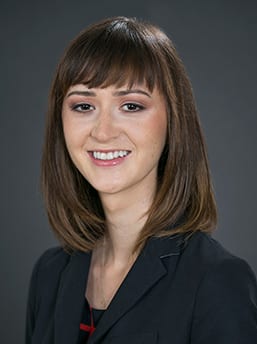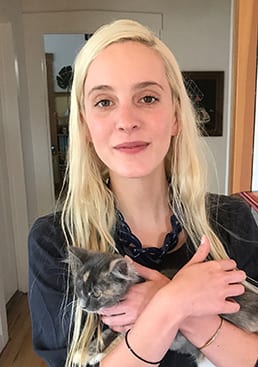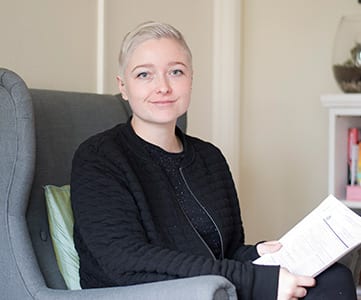By Andrew Cohen
Patience may be a virtue, but impatience often vaults Berkeley Law students into rewarding experiences with the Away Field Placement Program.
Having worked before law school, Natalia Krapiva ’18 was “impatient to get back into doing practical work and making a difference by using my newly acquired knowledge and skills.” During the spring semester, she spent 15 weeks in Geneva at the United Nations Office of the High Commissioner for Human Rights.
That same semester, Amy Egerton-Wiley ’18 worked at the Harriett Buhai Center for Family Law in Los Angeles, which protects domestic violence victims and provides free family law assistance and legal education to the poor.
“I didn’t feel like I’d gotten enough substantive real-life practice,” Egerton-Wiley said of her summer job after her 1L year. Speaking during a recent panel discussion to promote the field placement program, she said that “ten weeks is not a very substantial period of time, and I thought a field placement would allow me to experience an organization and participate in the work more fully and meaningfully, which absolutely happened.”
Ari Jones ’18 “decided to do an away field placement with the UCDC Law Program as a 1L” after attending an informational panel with program alumni.

Away field placement students receive 10 to 12 academic credits for legal work at approved nonprofits or government agencies in different countries, The Hague, or parts of the United States outside the Bay Area. This semester, 16 Berkeley Law students are participating in away field placements—10 on international soil.
International intrigue
Krapiva wanted to get “as much international public interest experience as possible because being a student … is one of the few opportunities to do it, and to get your foot in the door into such high profile places as the United Nations.”
She researched and wrote briefs advising senior staff on issues of international human rights law, international humanitarian law, and international criminal law. Krapiva edited human rights reports and amicus briefs, and helped create the International, Impartial and Independent Mechanism on Syria—including its roadmap for using digital evidence.
Beyond improving her research and writing skills, she gained unique networking opportunities. Krapiva noted myriad benefits the placement will provide this fall, when she begins work as a criminal prosecutor in New York City.
“It was an amazing experience,” she said of her time in Geneva. “I got to work with and advise the high commissioner and his senior staff on some of the world’s most pressing human rights issues. I attended the Human Rights Council, observed the law and politics of human rights in action, and got to know people from the UN and beyond who are the key experts and practitioners in the field.”
Krapiva became good friends with some of them, and developed both internal affiliations and connections with activists, NGOs, and state officials. “These new relationships greatly expanded my career network,” she said.
A new path
Having worked in a gallery for two years, Egerton-Wiley began law school pondering a career in art law before choosing to pursue other options. “I thought a field placement would allow me to try out work that interested me,” she said.

At the Buhai Center, she conducted client intakes, drafted legal briefs, and researched complex issues relating to pension plans, public benefits, property division, domestic violence, and child custody. She also helped clients represent themselves on a pro se basis, and assisted attorneys on a case with discovery, the brief, and trial preparation.
“Parsing through legal arguments with the attorneys felt important and exciting,” she said of the trial. “Being entrusted with that level of responsibility was thrilling and meaningful. And having the client express her gratitude for the work we did—which would significantly shape her life—was very humbling.”
Egerton-Wiley appreciated having “autonomy to meet with clients on my own and empower them to voice their needs in the legal system. The work was very dynamic, which I loved.” She also saw the importance of “simply allowing people in need to feel heard and validated.”
Egerton-Wiley will work at Jenner & Block in Los Angeles after graduation. She did pro bono work with the Family Violence Appellate Project during her 2L summer there, and she will intern there next semester. “I hope to continue that relationship and incorporate other domestic violence work into my pro bono and volunteering practice,” she said.
UCDC testimonial
Jones offered high praise for the UCDC Law Program, a full-semester externship in Washington, D.C. The program puts students into contact with the branches of federal government, regulatory agencies, and nonprofits, and provides both a weekly seminar-style course and a full-time field placement.

Jones worked at the Office of the Citizenship and Immigration Services Ombudsman, which investigates complaints and makes policy recommendations about adjudications on immigration status applications and agency processes. The focus: adjudication of Special Immigrant Juvenile Status, a way to obtain a green card for immigrants in the U.S. living without one or both parents.
Jones conducted legal research, collected data, and lead informal focus groups with practitioners, drafted a white paper with recommendations, and contributed to the office’s Annual Report. “All the government policy agencies doing national immigration work are based in D.C.,” Jones said. “I knew that if I wanted to do that work from the inside and make connections, I’d need to spend time there.”
Jones hailed UCDC’s sense of community, high-level speakers brought in to talk with students, and behind-the-scenes tours of the Capitol and Supreme Court. Students can also build networks with policy experts that could aid their eventual transitions into policy advocacy.
“My experience working on the government side of immigration could not be more valuable,” Jones said. “I now know how applications are actually processed, what could cause a delay or an issue, and who to contact to get help. As an immigration advocate based in California, I’d never get this insider knowledge without having worked in D.C.”